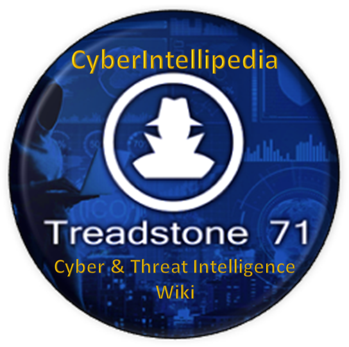
Generative AI - Certified Cyber CounterIntelligence Analyst
Generative AI Certified Cyber CounterIntelligence Analyst packs offensive and defensive tradecraft into an eight-to-twelve-week (on average continuous effort), on-demand sprint that is self-paced.
Watch Promo Clicking this button means concurrence with the site and course EULA.Cyber Counterintelligence Driven by Generative AI
Build counterespionage skill in a modern environment that blends tradecraft with Generative AI. Work missions that cover cyber infiltration, influence operations, and active defense while AI tools accelerate detection, analysis, and response.
Start Now Preview SyllabusCourse Overview
Study how traditional counterintelligence evolved into the cyber domain. Integrate AI to sharpen operations across defense and offense. Practice with real scenarios in counterespionage, cyber infiltration, and influence operations while AI supports targeting, triage, and decision speed.
Key Learning Areas
Generative AI Integration
Generative AI powers simulations of adversary behavior, strengthens deception design, and surfaces real-time insight. Automation supports disinformation detection, counter-influence action, and refinement of tactics while operations are in motion.
Core Topics
Practical Applications
Special Focus Areas
Independent Research
Assignments reinforce method with AI tooling across threat studies, disinformation tracking, deception design, and analytic production. Work focuses on how AI strengthens operational cybersecurity and passive collection to produce outcomes that transfer to the job.
Outcome
Graduates understand modern counterintelligence and the role of AI across missions. Skills include detection, disruption, and defense against evolving threats, adversary profiling, and strategy design for resilient protection.
Offensive Countermeasures
Learn open-source tools and AI-enhanced methods that reinforce deception and denial. Concepts inspired by active defense practice frame tactics that slow intruders, support attribution, and shape safe, effective countermeasures. AI augments monitoring, highlights behavioral pivots, and suggests intervention points that raise the cost for attackers.
Advanced Toolsets & AI
Tooling is organized for annoyance, attribution, and active defense. Annoyance increases friction and forces mistakes. Attribution clarifies origin, tradecraft, and path. Active defense guides lawful response. AI knits detection, behavior tracking, and predictive analysis into a faster, more proactive posture.
Lead Instructor
Forty years of intelligence experience are built into this online recorded course with the availability for instructor office hours or email/text Q&A
Gain access to on-demand modules, templates, and guidance while you build operational skill in counterintelligence with AI integrated throughout.
Your Instructor

Treadstone 71 is a woman and veteran-owned small business exclusively focused on cyber and threat intelligence consulting, services, and training. We are a pure-play intelligence shop.
Training dates and locations here
Since 2002, Treadstone 71 delivers intelligence training, strategic, operational, and tactical intelligence consulting, and research. We provide a seamless extension of your organization efficiently and effectively moving your organization to cyber intelligence program maturity. Our training, established in 2008, follows intelligence community standards as applied to the ever-changing threat environment delivering forecasts and estimates as intelligence intends. From baseline research to adversary targeted advisories and dossiers, Treadstone 71 products align with your intelligence requirements. We do not follow the create once and deliver many model. We contextually tie our products to your needs. Intelligence is our only business.
- We use intuition, structured techniques, and years of experience.
- We supply intelligence based on clearly defined requirements.
- We do not assign five people to do a job only one with experience.
- We do not bid base bones only to change order you to overspending.
We are known for our ability to:
- Anticipate key target or threat activities that are likely to prompt a leadership decision.
- Aid in coordinating, validating, and managing collection requirements, plans, and activities.
- Monitor and report changes in threat dispositions, activities, tactics, capabilities, objectives as related to designated cyber operations warning problem sets.
- Produce timely, fused, all-source cyber operations intelligence and indications and warnings intelligence products (e.g., threat assessments, briefings, intelligence studies, country studies).
- Provide intelligence analysis and support to designated exercises, planning activities, and time-sensitive operations.
- Develop or recommend analytic approaches or solutions to problems and situations for which information is incomplete or no precedent exists.
- Recognize and mitigate deception in reporting and analysis.
Assess intelligence, recommend targets to support operational objectives. - Assess target vulnerabilities and capabilities to determine a course of action.
- Assist in the development of priority information requirements.
- Enable synchronization of intelligence support plans across the supply chain.
- ...and Review and understand organizational leadership objectives and planning guidance non-inclusively.
Course Curriculum
-
StartCyber CounterIntelligence Lecture 6 - Myers-Briggs Destructive and Under Pressure Modes - Generative AI (32:32)
-
StartCyber CounterIntelligence Lecture 6 - Social Engineering, Manipulation and Propaganda (11:11)
-
StartWeek 3 Assignment
-
StartCyber CounterIntelligence - The Dark Triad and Pitch Black Tetrad (20:24)
-
StartCyber CounterIntelligence - The Big 5 / OCEAN (40:02)
-
StartCyber CounterIntelligence - Rules for the Seven Radicals (26:06)
